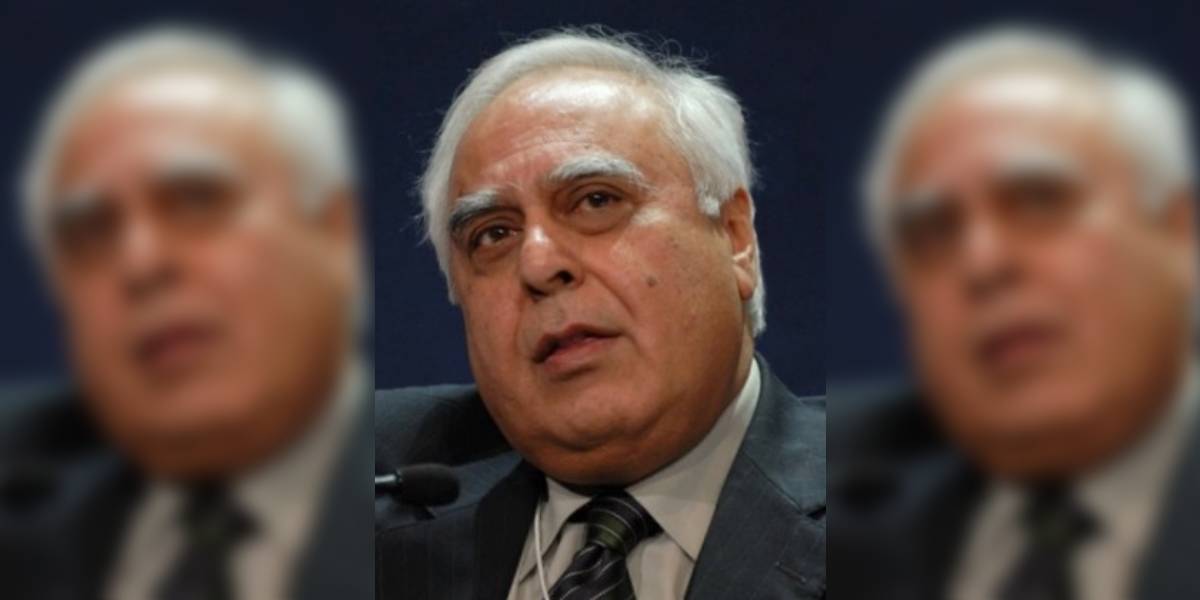Kapil Sibal alleged the government is bypassing the Judges Inquiry Act to undermine judicial independence, with reports claiming Law Minister Rijiju sought opposition backing to remove Justice Verma sans formal impeachment
Published Jun 10, 2025 | 8:38 PM ⚊ Updated Jun 10, 2025 | 8:38 PM

Kapil Sibal. (Creative Commons)
Synopsis: Senior advocate and Rajya Sabha MP Kapil Sibal accused the Centre and Rajya Sabha Chairman of procedural lapses and bias in delaying an impeachment motion against Justice Shekhar Yadav. Filed on December 1, 2024, and signed by 55 MPs, the motion cited Yadav’s controversial speech allegedly influenced by the VHP. Sibal alleged deliberate shielding despite strong precedent and evidence
Senior advocate and Rajya Sabha MP Kapil Sibal launched a scathing critique against the central government and the Chairman of the Rajya Sabha, alleging serious procedural lapses and political bias in handling the impeachment motion filed against Justice Shekhar Yadav.
In a press conference held this week, Sibal questioned the delay in processing the motion and accused the authorities of shielding Justice Yadav despite compelling evidence and precedent demanding swift action.
Two different standards in relation to SC inhouse procedure
My Press Conference today 👇https://t.co/H0WsVcrlI5— Kapil Sibal (@KapilSibal) June 10, 2025
Sibal stated that on December 1, 2024, an impeachment motion was formally submitted to the Chairman of the Rajya Sabha. The motion, signed by 55 Members of Parliament, called for action against Justice Shekhar Yadav following his controversial speech allegedly made under the influence of the Vishwa Hindu Parishad (VHP) at a High Court premises.
Despite the passage of six months, the Chairman had yet to verify the signatures or advance the motion for further scrutiny.
“It is the constitutional duty of those holding high office to ascertain the authenticity of the signatures. Does it take six months for such verification? This inaction raises questions on intent,” said Sibal.
Sibal pointed out that the issue isn’t merely about procedural delay but about the impartiality and integrity of constitutional institutions.
He further cited that the in-house procedure initiated by the Supreme Court in response to Yadav’s speech was well within the Court’s domain and had no legal or procedural overlap with the impeachment motion.
Yet, a letter was issued by the Secretariat General of the Rajya Sabha to the Chief Justice of India (CJI) in March 2025, asking the Court to halt further action citing the pending impeachment motion.
According to Sibal, this intervention was unprecedented and constitutionally dubious. “How can the Chairman or the government write to the CJI asking to halt an in-house inquiry? The two processes are entirely separate. The in-house mechanism is meant to investigate judicial conduct at the behest of the judiciary itself,” he argued.
Highlighting the timeline, Sibal recounted how Justice Yadav was summoned by the Supreme Court following his speech, and a negative report was subsequently submitted by the Chief Justice of the Allahabad High Court. Despite this, the impeachment motion lingered unresolved.
“This is clearly a tactic to buy time. Justice Yadav is due to retire in early 2026. The delay in verifying the signatures or admitting the motion appears to be deliberate so that no action is taken before his retirement,” he added.
Sibal also contrasted the government’s approach in Yadav’s case with another in-house inquiry involving Justice Yashwant Verma. He questioned why a similar intervention was not made in Verma’s case, despite that matter also being in the public domain.
“This reflects a discriminatory approach. If public domain knowledge of an in-house procedure was sufficient to prompt intervention in Yadav’s case, why didn’t the Chairman act similarly in Verma’s case? The only logical conclusion is selective protection,” Sibal said.
He raised alarms about the apparent intent of the government to undermine the judiciary by bypassing the Judges Inquiry Act.
Reports suggest that Union Law Minister Kiren Rijiju had been reaching out to various opposition parties to garner support for removing Justice Yashwant Verma based on an in-house report — without initiating a formal impeachment process.
“There is no impeachment motion yet — neither in the Lok Sabha nor in the Rajya Sabha. And yet, we are hearing that the government wants to remove a judge based on an in-house report. That is unconstitutional,” he emphasized.
Sibal clarified that in-house procedures are meant solely for internal administrative use within the judiciary. They are not substitutes for formal impeachment under the Judges Inquiry Act, which requires specific processes and a committee-led inquiry.
“If the government tries to use an internal in-house report to remove a judge without invoking the Judges Inquiry Act, it will be nothing short of an attack on judicial independence,” Sibal warned. “This indirect method of influencing or eliminating judges is deeply concerning.”
The senior advocate accused the government of “subverting the rule of law” and warned that such actions, if unchecked, could severely erode the judiciary’s autonomy.
“This is an alarming precedent. If this becomes the norm — where the government delays impeachment procedures and uses in-house reports for removals — the checks and balances between institutions will collapse,” he stated.
In his closing remarks, Sibal appealed to the public and legal fraternity to recognize the gravity of the situation. “Through you, I want the people of India to know how those occupying the highest offices are selectively performing their duties, and how that threatens the foundational principles of our democracy.”
Sibal’s press conference has reignited the debate over judicial accountability, the separation of powers, and the role of constitutional authorities in preserving institutional integrity.
As the nation awaits a response from the Rajya Sabha Secretariat and the government, the question remains — will constitutional propriety prevail over political expediency?
(Compiled by Ananya Rao)
